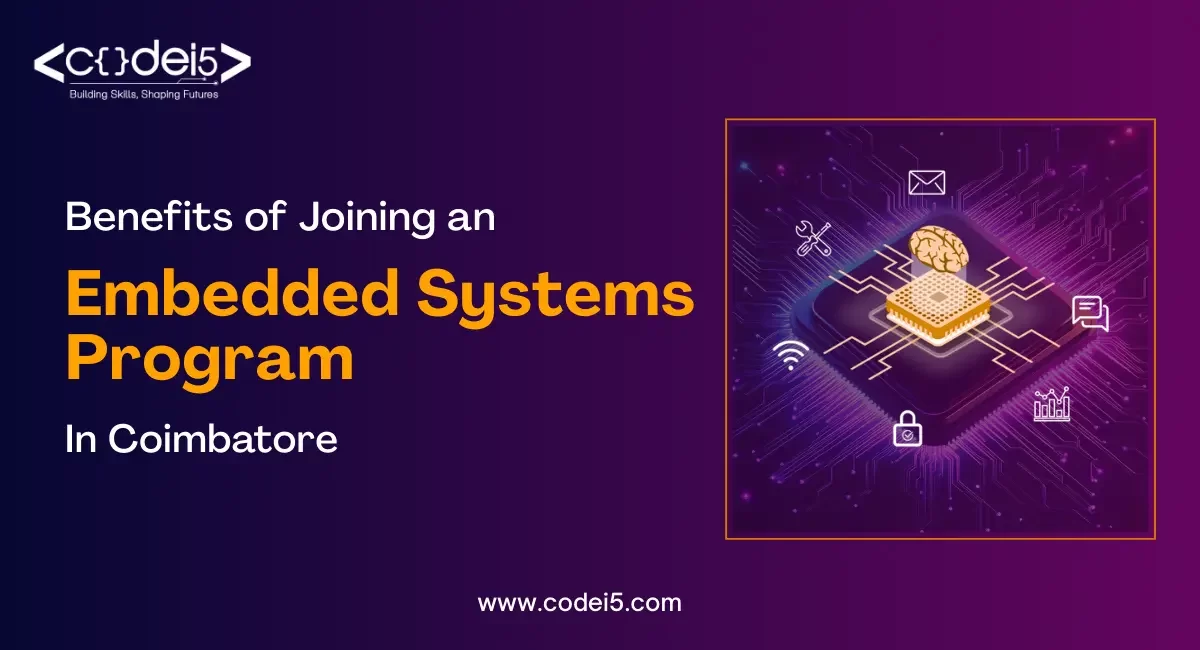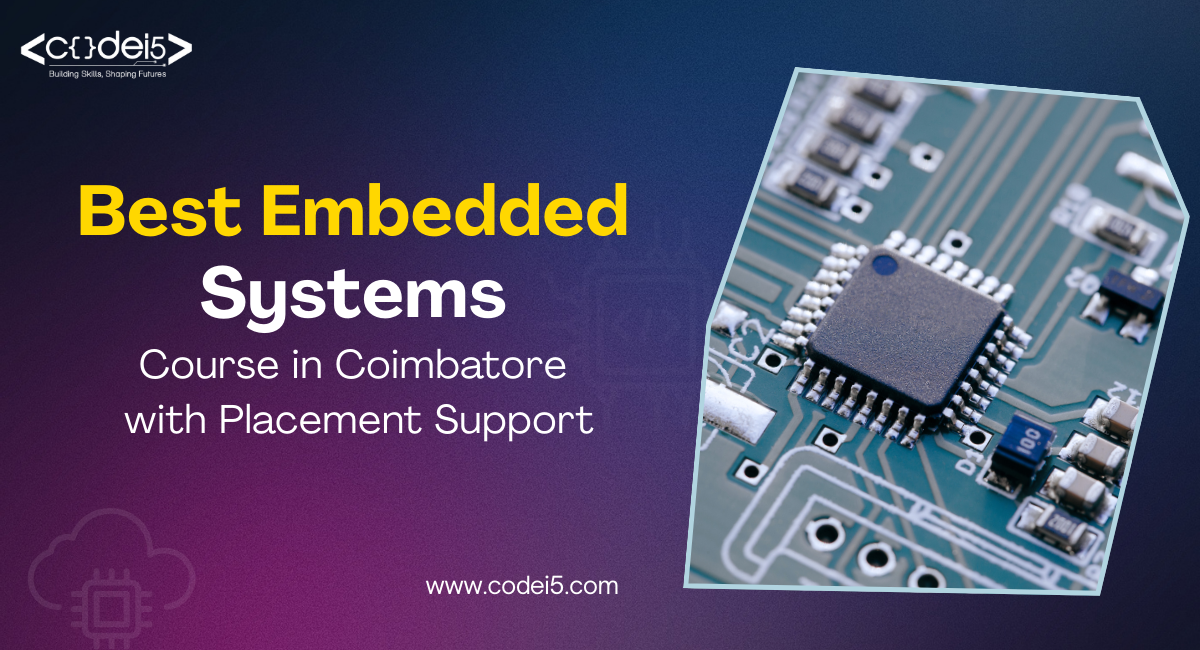
The fascinating world of embedded systems is a secret domain that powers our devices’ intelligence, responsiveness, and efficiency in this era of rapid technological breakthroughs.
Setting out on an expedition into the core of invention, this investigation reveals a varied landscape of professional vocations that serve as the framework for contemporary technological marvels. Embedded Systems offers an exciting range of opportunities, from designing and programming microcontrollers to creating firmware and maximizing hardware-software interactions.
Come along on a journey that sheds light on the fascinating employment roles that are flourishing in embedded systems, where creativity and pragmatism collide, and endless opportunities lie ahead for individuals who are driven to influence the direction of technology.
What are Embedded Systems?
Embedded systems are the unsung heroes of technology; they subtly control the operation of the things we use on a daily basis.
These systems are made up of a mix of hardware and software that have been specially created to carry out certain functions inside bigger mechanical or electrical systems. Their importance can be observed in many different industries, where they are essential in improving automation, accuracy, and efficiency.
Career Opportunities in Embedded Systems:
An individual with a strong interest in technology and creativity might pursue a variety of fulfilling career choices in the field of embedded systems.
In this ever-evolving field, the following are some of the principal jobs and opportunities:
Embedded Software Engineer: These experts create, test, develop, and manage software systems that run on embedded hardware. The code, troubleshoot and optimize software for a range of applications, including medical devices, consumer electronics, and automotive systems.
Hardware Engineering: The physical design and development of embedded systems is the primary emphasis of hardware engineers. To guarantee the smooth operation of software and hardware components, they work on circuit design, PCB (Printed Circuit Board) layouts, and hardware integration.
Firmware Engineer: The creation and optimization of the software that manages the low-level operations of hardware devices is the area of expertise for firmware engineers. They create firmware code that gives gadgets the ability to carry out particular tasks, maximizing efficiency and guaranteeing dependability.
Embedded Systems Architect: These experts supervise every step of the embedded system development and design process. They design system architectures, choose hardware parts, specify software frameworks, and guarantee the system’s integration and operation.
Embedded Systems Tester: Engineers that specialize in validation test and validate embedded systems to make sure they adhere to safety, reliability, and performance requirements. To guarantee the quality of the embedded systems, they design test strategies, carry out system testing, and resolve problems.
IoT Engineer(Internet of Things): As the Internet of Things (IoT) grows, engineers who specialize in this field concentrate on establishing connections between embedded devices and the Internet to facilitate data gathering and communication. For IoT-enabled embedded systems, they concentrate on data analysis, security, and networking.
Robotics Engineering: The use of embedded systems is essential in robotics. Robotics engineers create embedded systems and design them to operate various aspects of robotics, such as movement, sensors, and decision-making.
Automotive System Engineer: These experts create embedded systems for automobiles, specializing in the automotive sector. They concentrate on topics such as autonomous driving, infotainment systems, advanced driver assistance systems (ADAS), and vehicle control systems.
Medical Device Embedded Systems engineer: This group of engineers develops embedded systems for medical devices while making sure they adhere to strict reliability and safety requirements. Pacemakers, insulin pumps, monitoring systems, and other gadgets are among them.
Embedded System Consultant: Expertise and direction in embedded system design, implementation, and optimization techniques are provided by consultants to enterprises.
A wide variety of career paths that accommodate different technological expertise and hobbies can be found in the field of embedded systems. Embedded systems are an interesting and attractive industry for prospective tech enthusiasts, with a significant demand for qualified workers across industries as technology continues to improve.
Education and skill development:
If you are looking for job opportunities in embedded systems, it requires a combination of technical proficiency, analytical skills, and in-depth knowledge of hardware-software integration. The following are the fundamental abilities needed to succeed in this field:
- Programming Languages
- Embedded Systems Architecture
- Real-Time Operating Systems
- Hardware Design and Prototyping
- Communication Protocols
- Debugging and Testing Skills
- Problem Solving and Critical Thinking
- Knowledge of Electronics and Circuitry
- Security and Optimization
10. Continuous Learning and Adaptability
These abilities, together with real-world knowledge acquired via projects and practical application, serve as the cornerstone of an effective career in embedded systems. Staying up to date with industry innovations and pursuing further education is crucial for success in this always-changing and dynamic business.
Getting the necessary training, credentials, and practical experience in Embedded Systems requires an integrated strategy that includes classroom instruction, on-the-job training, and continuous skill development. To obtain a foundational understanding, begin by pursuing a Bachelor’s degree in an area like computer science, electrical engineering, or computer engineering. A Master’s degree might be a good next step if you want to specialize. Enhance your academic knowledge by gaining practical experience through projects, internships, and involvement in open-source efforts.
You can network with professionals and learn about industry trends by going to workshops, seminars, and industry events. It’s important to never stop learning, so keep up with the newest developments and technological innovations in the industry.
Recall that the cornerstone of a prosperous career in embedded systems is a combination of education, real-world experience, and a dedication to lifelong learning.
Why join our institute?
At Codei5 Academy, we provide the best-embedded systems training. We’re committed to influencing the future by giving people the knowledge and abilities required to succeed in the fast-paced field of embedded systems. As a leading training institution, we take great satisfaction in providing an extensive curriculum designed to spark an interest in innovation and satisfy the changing needs of the business.
Our committed group of knowledgeable teachers and mentors offers tailored instruction to maximize each student’s potential. At Codei5 institution, we don’t just train individuals; we cultivate future innovators and thought leaders.
Join us and become a part of the revolution in Embedded Systems!







